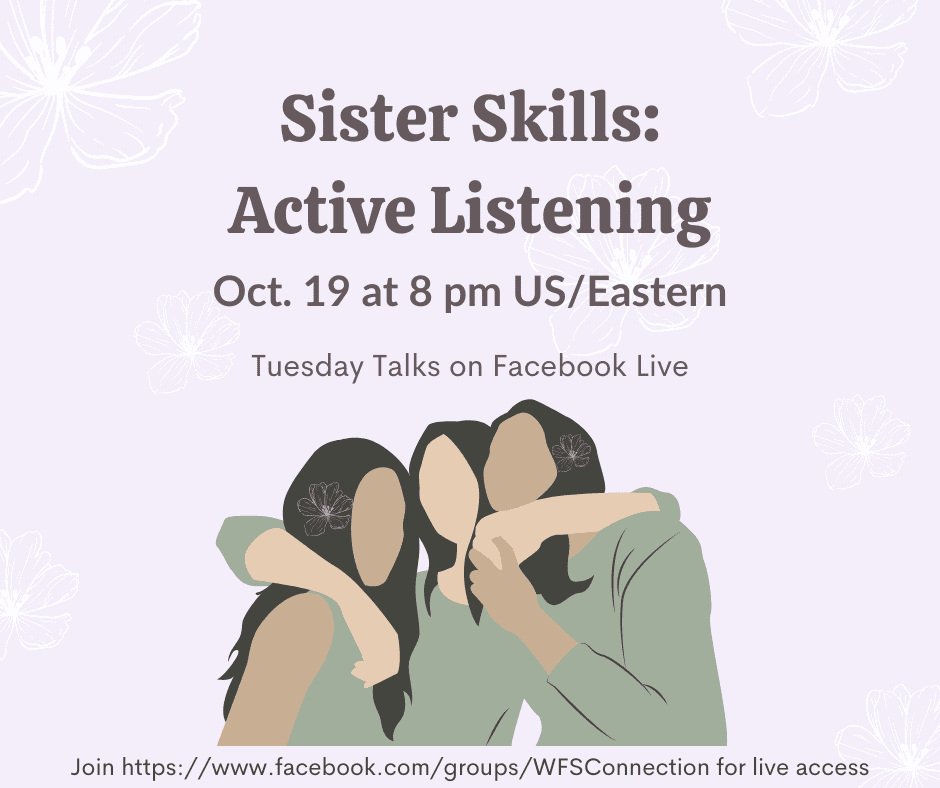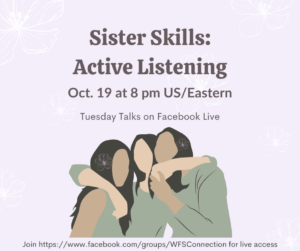Your cart is currently empty!

Monday Thoughts 10/18/2021

“I encourage people to remember that “no” is a complete sentence.” ~~Gavin de Becker
“To be aggressive is to decide for others. To be assertive is to decide for yourself. And to trust that there is enough, that you are enough.” ~~Edith Eva Eger
“Assertiveness is not what you do, it’s who you are!” ~~Shakti Gawain
#4 Problems bother me only to the degree I permit.
I now better understand my problems.
I do not permit problems to overwhelm me.
Standing in strength is just one of the many incredible benefits of sobriety and recovery. In the past there was a time when I either cowered down in fear or aggressively lashed out. There was no in-between. Both were fear responses to problems and neither worked to solve anything. Usually, the situation worsened and left me searching for ways to then escape (alcohol). Yet sobriety and Statement #4 in action enabled a shift from fear, to understanding and a middle ground.
In our WFS Reflections for Growth it states “Children very rarely have many choices. Their lives are dictated by those who raise them. Because we all grow up in an atmosphere of being told what we should do, it is often difficult for us to assert ourselves later in life. Assertiveness needs practice. This is something I will learn and practice. I will assert myself and do this.” Just as we learn how to live in sobriety, we learn how to stand in our strength.
Here are five ways to incorporate assertive communication into your life by Elizabeth Scott, PhD:
“1. Be Factual About What You Don’t Like
When approaching someone about a behavior you’d like to see changed, stick to factual descriptions of what they’ve done, rather than using negative labels or words that convey judgments. For example:
Situation: Your friend, who habitually runs late, has shown up 20 minutes late for a lunch date.
Inappropriate (aggressive) response: “You’re so rude! You’re always late.”
Assertive communication: “We were supposed to meet at 11:30, but now it’s 11:50.”
Don’t assume you know what the other person’s motives are, especially if you think they’re negative. In this situation, don’t assume that your friend deliberately arrived late because they didn’t want to come or because they value their own time more than yours.
2. Don’t Judge or Exaggerate
Being factual about what you don’t like in someone’s behavior, without overdramatizing or judging, is an important start. The same is true for describing the effects of their behavior. Don’t exaggerate, label, or judge; just describe:
Inappropriate response: “Now, lunch is ruined.”
Assertive communication: “Now, I have less time to spend at lunch because I still need to be back to work by 1:00.”
Body language and tone of voice matter in assertive communication. Let yours reflect your confidence: Stand up straight, maintain eye contact, and relax. Use a firm but pleasant tone.
3. Use “I” Messages
When you start a sentence with “You…”, it comes off as a judgment or an attack and puts people on the defensive. If you start with “I,” the focus is more on how you are feeling and how you are affected by their behavior.
Also, it shows more ownership of your reactions and less blame. This helps minimize defensiveness in the other person, model the act of taking responsibility, and move you both toward positive change.5 For example:
You Message: “You need to stop that!”
I Message: “I’d like it if you’d stop that.”
When in a discussion, don’t forget to listen and ask questions. It’s important to understand the other person’s point of view.
4. Put It All Together
Here’s a great formula that puts it all together:
“When you [their behavior], I feel [your feelings].”
When used with factual statements, rather than judgments or labels, this formula provides a direct, non-attacking, more responsible way of letting people know how their behavior affects you. For example: “When you yell, I feel attacked.”
5. List behavior, results, and feelings.
A more advanced variation of this formula includes the results of their behavior (again, put into factual terms), and looks like this:
“When you [their behavior], then [results of their behavior], and I feel [how you feel].”
For example: “When you arrive late, I have to wait, and I feel frustrated.”
Or, “When you tell the kids they can do something that I’ve already forbidden, some of my authority as a parent is taken away, and I feel undermined.”
Try to think win-win: See if you can find a compromise or a way for you both to get your needs met. In the case of the always-late friend, maybe a different meeting place would help them be on time. Or you can choose to make plans only at times when your schedule is more open and their lateness won’t cause you as much stress.”
This week, look for opportunities to practice assertive communication. It can feel uncomfortable at first yet over time these actions build on themselves and cement Statement #4 in our New Life.
Hugzzz
Karen
Hi 4C Women,
I almost wanted to respond to this scenario about the habitually late friend that I assertively left the restaurant, gave an assertive and respectful note to the server to give my habitually late friend and hoped she learned that everyone’s time is valuable. However, I can see that some lessons in approaching others and being assertive needs more detailed guidance and definitely practice.
My granddaughter is habitually late so the specific scenario in assertiveness about lateness touched home and I thought about how I have handled “Amber time” over the years. I started giving her earlier times but unfortunately that didn’t work. One Thanksgiving, after waiting for an extraordinary length of time, we just decided to go ahead and eat rather than let everything go cold, especially since she wasn’t bringing anything except her adorable presence to the table and my daughter and I were exhausted from cooking both the night before and the day of Thanksgiving.
Well, that didn’t work out well at all. Hurt feelings and a not so thankful day. This message will provide a better way, I am hoping, to future Thanksgivings and gatherings I have never been aggressive yet I have also not been assertive until lately. Something about aging and setting boundaries has taken hold and I am grateful. I have always been one to watch my words as I know they are powerful. Words can hurt or heal and the delivery of them has power as well (point #2).
I believe assertiveness is about respect for each other. While I consider myself a good listener, it is clear that I need to practice listening first in certain situations before I jump to judgment and then use the “I” message with facts and feelings as suggested.
Think about the last time you were assertive. Were you pleased with the results? Is there something you might have done differently after learning the 5 ways shared above. We are fortunate to be able to continue learning ways to create positive communication in our New Life.
Bonded in empowering assertiveness, Dee




